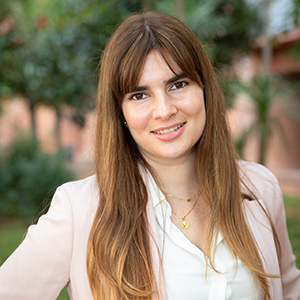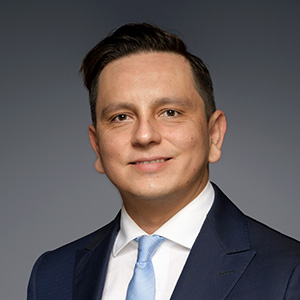Harvard Fellows See Rights of Nature Conference as a Vital Step Forward
 When the New Legal Perspectives: The Synergy of Law and Science to Protect the Rights of Nature conference is held on September 14 at the Michigan State University College of Law, two panel members will bring an intriguing perspective. Visiting Fellows at the Harvard Law School, Macarena Montes and Carlos Contreras, have actively worked on behalf of animal rights.
When the New Legal Perspectives: The Synergy of Law and Science to Protect the Rights of Nature conference is held on September 14 at the Michigan State University College of Law, two panel members will bring an intriguing perspective. Visiting Fellows at the Harvard Law School, Macarena Montes and Carlos Contreras, have actively worked on behalf of animal rights.
As Fellows in the Brooks McCormick Jr. Animal Law & Policy Program, both bring impeccable law credentials to the conference. Their hands-on work on behalf of animal rights was a major reason MSU Professor David Favre invited them to participate. Like Professor Favre, who is coordinating the event, they have spent years studying the concept of law, nature, and animal rights.
Professor Montes is an attorney and researcher with a Ph.D. in law from Universitat Pompeu Fabra in Barcelona, Spain. She is also a Board Member of the UPF-Centre for Animal Ethics, Editor of the Journal Law, Ethics and Philosophy, a member of the Editorial Committee of the Chilean Journal of Animal Law, and Treasurer of the Great Ape Project – Spain. She has also written several articles on non-human animal personhood, animal rights, and animal law, and authored a book titled, “Animal Law in Chile.”
 Professor Contreras holds a law degree from the Pontifical Xaverian University in Bogota, Colombia, and from the University of the Basque Country in Spain, and a Ph.D. from Autonomous University of Barcelona. He also taught animal rights courses in Barcelona. Additionally, he created a law firm specializing in Animal Law and is the current President of the Barcelona Bar Association’s Commission for the Protection of Animal Rights.
Professor Contreras holds a law degree from the Pontifical Xaverian University in Bogota, Colombia, and from the University of the Basque Country in Spain, and a Ph.D. from Autonomous University of Barcelona. He also taught animal rights courses in Barcelona. Additionally, he created a law firm specializing in Animal Law and is the current President of the Barcelona Bar Association’s Commission for the Protection of Animal Rights.
Professor Favre says their participation provides a vital view from another part of the world where animal rights have long been a major topic. “We will get to learn what others have to say,” he said. “The slate is a little cleaner in Latin America because there’s nothing in our Constitution that talks about the rights of nature.”
A legal scholar, Professor Montes agrees. “Latin America is a leader in advancing animal rights.” Her work with Harvard in filing an amicus brief in defense of animal rights led the Ecuadorian Constitutional Court to recognize that animals are protected by the constitutional rights of nature. Ecuador is the only country in the world to recognize the rights of nature in its Constitution, according to Professor Montes.
Professor and legal scholar Contreras, who calls Professor Favre a “mentor,” sees the study of animal rights and the rights of nature taking hold around the world because, in the end, it protects everyone. “Europe is following the same road (as Latin America),” he said. “It’s kind of unstoppable. Political parties and powerful entities are more willing to produce laws in terms of recognizing the rights of nature. It’s being seen as a pragmatic and strategic tool for moving forward. We want to protect our nature and our animals and eventually ourselves.”
“The rights of nature framework is a way to include other living beings into the protection of the law,” Professor Montes said. “It allows non-human beings like animals and nature to be protected. The current legal framework has been insufficient to stop the destruction of the planet.” She said the groundbreaking case she worked on involving Ecuador was a key moment in the rights of nature and animal rights discussion.
“The Ecuadorian Constitutional Court stated individual animals are protected by the rights of nature,” she said. “It was a change from traditional environmental law that solely protects animal species. This is the first ruling that says that the rights of nature can protect individual animals.”
Both Harvard Fellows are convinced that this conference will help shape a continuing discussion on what those rights of nature entail. “We absolutely believe it will move the conversation forward,” Professor Contreras said. “We are all coming from different backgrounds in the conference. We’ve been working in different areas, so the debate is really important, and students will be able to see different points of view. This is a unique event and we are really looking forward to it.”

